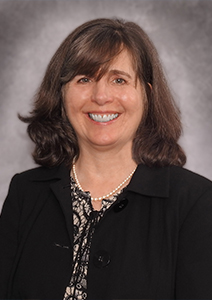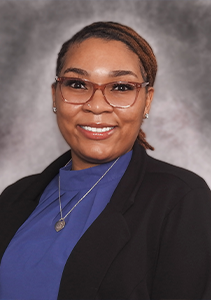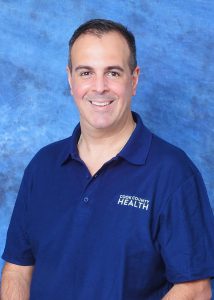Academic Associate Program at Stroger Hospital Offers Undergraduates Real-World Research Experience
When 19-year-old Katherine Xie, of Long Grove, started college she knew she liked medical research, and thought she might end up in a lab. But now her sights are set on clinical research in a patient setting in large part due to the Academic Associate Program at John H. Stroger, Jr. Hospital.
The new collaborative research program, aimed at pre-med undergraduate students, is designed to instill a passion for research, emergency medicine and serving a disadvantaged population. The students receive valuable real-world ED experience in a busy public hospital. The Cook County Health Emergency Medicine Department benefits from much needed assistance on valuable research projects.
“Usually undergraduates don’t have much exposure to patient care or clinical research. We study a living breathing ED instead of an experimental lab system. These young adults have the opportunity to work alongside doctors and nurses, while also interacting with patients and gathering crucial research data. It’s a win-win,” said Dr. John Bailitz, an Emergency Medicine physician and Emergency Medicine Collaborative Research Director.
Ten University of Illinois-Chicago pre-med students were recruited for the inaugural program this semester. The students completed a research boot-camp to introduce them to academic and medical research, then hit the ground running collecting data for two research projects. One is focused on improving the patient experience in the ED, the other is studying access to Naloxone for opioid overdoses. Both require face-to-face contact with patients
“We are all born to be experimenters and use our creativity. We want to encourage future doctors to never lose the natural curiosity we all had as children,” said Lum Rizvanolli, Academic Associate Program coordinator.
Another goal of the program is to recruit minority students in an effort to encourage more diversity among the Emergency Department clinical staff. Xie, the daughter of Chinese immigrants, says her ability to speak Chinese helped put a family at ease during a stressful visit to the ED.
“I was able to play an important role and that solidified my interest in working directly with patients in the future,” said Xie. “Interacting with the diverse backgrounds and cultures of the patients at Stroger has been incredible experience.”
The program includes a fundamental learning component, online learning challenges, lessons on presenting research, and the very popular “Clinical Pearls”, on online portal where the students share something new they learned after every shadowing session. A leader board spurs some friendly competition among the students.
UIC Junior Rachel Gonzalez, of Chicago, says the combination of hands-on research, online learning and clinical experience has improved her confidence and helped define her future goals.
“I’m hooked on Emergency Medicine. I love the challenge of trying to figure out what may be causing illness and ultimately helping patients feel better,” said Gonzalez. “I feel like I’ve already made a difference.”
Associates must commit to a minimum of four hours a week for six months, but are welcome to continue the program throughout their undergraduate years.


